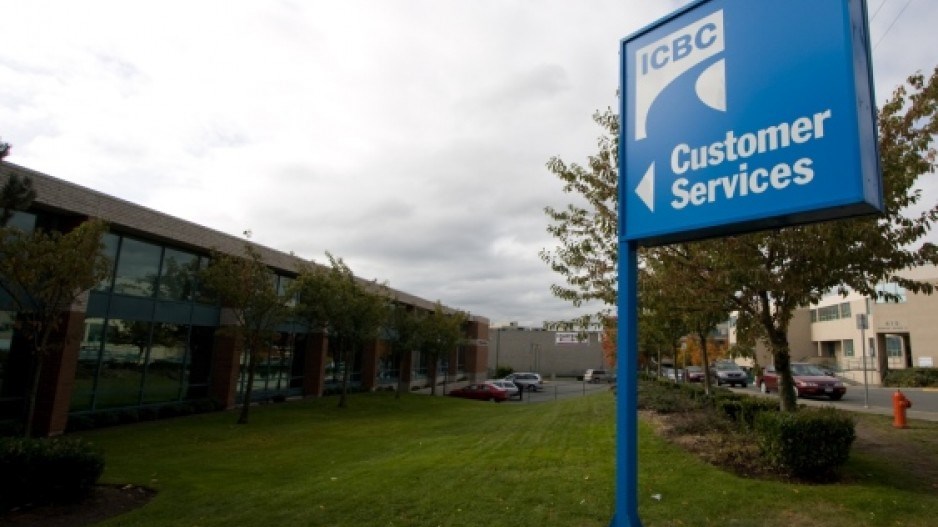The Insurance Corporation of British Columbia (ICBC) has posted a loss of $935 million for the first nine months of its 2017/18 fiscal year ending March 31 and is forecasting a total loss of $1.3 billion for the full year.
By comparison, in the first nine months of the last fiscal year, the net loss was $232 million, and the loss for the entire year was $533 million.
The Crown corporation blamed the increasing loss on the number of crashes occurring across the province, saying they are “continuing to escalate year-after-year,” leading to the number of claims increasing by “thousands each year.” As well, it said, the costs of those claims is rising.
“ICBC’s net claims costs for the first nine months of our current fiscal year totaled $4.25 billion,” it said in a press release. “Simply put, the amount of premiums we are collecting from customers is not covering the ever-increasing amounts we are paying out in claims costs.
“This is not sustainable.”
The cost of injury claims is approaching $3 billion per year, up from $2 billion in 2014.
Total earned revenues – which includes premiums and service fees – were $4.1 billion in the nine months ended December 31, up from $3.8 billion in the same period last year.
ICBC blamed some of the increasing shortfall on an “unprecedented” jump in large loss claims, which have increased 80% over the past year. The average cost of such claims is $450,000 per claim, ICBC said.
'Gross incompetence' and 'mismanagement'
Attorney General David Eby said when his government first took over government and got a look at ICBC’s books, he assumed there was “gross incompetence” and "mismanagement” involved.
But after learning the previous Liberal government had scrubbed a report in 2014 that warned of ballooning costs and made recommendations for addressing the problem, Eby said, “it started to feel a little bit more like malice.”
“I was incredibly disturbed to learn about a report commissioned in 2014 that was not released in full to the public that actually had apparently pages removed that outlined to the public that there was a concern building that ICBC’s finances were not sustainable and changes needed to be made,” Eby said.
He said former Transportation and Finance ministers Todd Stone and Mike de Jong – both of whom are seeking the Liberal leadership nomination – have some explanations to give the public about why it did not act sooner to avoid the current financial crisis.
Eby wants to have that full report released to the public, but said it is protected by cabinet privilege, so he will need former Liberal cabinet ministers’ approval to release it.
“I’m advised that it’s covered by something called cabinet privilege which prevents me from releasing it publicly, ironically, without the consent of the very people who didn’t want to release it in the first place.”
Eby said the numbers for ICBC are so bad, he has asked a third party auditor to review them.
“The numbers are so high that I’ve actually asked a third party financial firm, an auditor, to go in and review ICBC’s assumptions to go over these numbers to confirm them. I have no reason to doubt them except for the fact that they are so astounding that I want to have absolute confidence in these numbers going forward.”
Eby admitted that ICBC’s debt will have implications for the next provincial budget and put strain on his government’s ability to pay for some of the costly promises it made.
Despite the apparent need for some radical changes to B.C.’s public auto insurer, Eby has dismissed out-of-hand two possible solution: privatizing ICBC or moving to no-fault insurance.
Pointing to high auto insurance rates in Ontario, which has private insurance, Eby said privatization was no guarantee that insurance premiums would be any lower.




